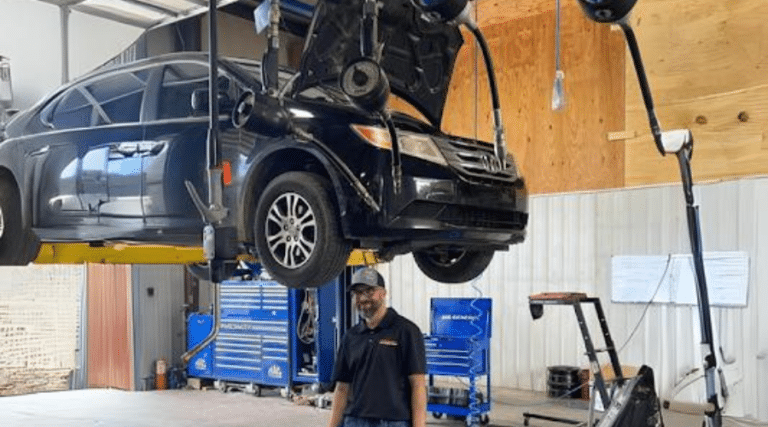Featured
Your automobile's brakes are one of the most crucial components in guaranteeing your safety and security and the security of others on the roadway. Regular brake assessments are crucial to maintaining ideal braking performance and staying clear of costly repair services. Whether you're an experienced cars and truck owner or a new motorist, comprehending brake inspection guidelines can help you stay aggressive regarding maintenance and guarantee your automobile is always roadworthy.
- Why Brake Inspections Matter. The even more you drive, the more friction your brake pads endure, ultimately leading to decreased stopping performance. Without correct examination, it's challenging to gauge when your brakes could be in need of repair work.
A well-maintained brake system makes certain fast, responsive stopping power, particularly in emergencies. It also aids prolong the life of your vehicle, as overlooking brake maintenance can cause much more extreme, expensive issues later.
- Indications You Required a Brake Evaluation. While it's important to have your brakes inspected regularly, particular indications might suggest that they need focus. Watch (and ear) out for these caution signals:
Squeaking or Grinding Sounds: Uncommon noises, particularly a high-pitched screech or grinding noise, commonly suggest that your brake pads are used down. Vibration or Pulsation: If you really feel vibrations or a pulsing experience when pushing the brake pedal, it could be an indicator of deformed blades or irregular brake pad wear. Reduced Brake Responsiveness: If your brakes feel much less receptive or you have to push the pedal harder to reduce down, it might show air in the brake lines or reduced brake liquid. Pulling to One Side: If your vehicle pulls to one side when braking, it might mean irregular brake pad wear or a brake liquid leakage. Control Panel Caution Lights: Some cars have brake-related warning lights that suggest concerns like low brake fluid or worn brake components. If you discover any of these symptoms, it's critical to have an expert mechanic do a brake evaluation as quickly as feasible.

- What Happens During a Brake Assessment? Throughout a brake evaluation, an auto mechanic will certainly examine numerous vital parts of the stopping system to ensure whatever is in working order. Below's what you can expect throughout the process:
Brake Pads and Shoes: The auto mechanic will certainly evaluate the density of the brake pads or shoes. If they're too thin, they'll require to be changed. Brake Rotors: Rotors are the discs that the brake pads press against to reduce your vehicle down. They'll be checked for any signs of wear, scoring, or bending. Brake Liquid: Low or polluted brake liquid can impair stopping efficiency. The professional will certainly inspect the fluid degree and quality and leading it up or purge it if essential. Brake Lines and Hose pipes: Brake lines bring liquid from the master cyndrical tube to the brakes. The auto mechanic will certainly examine for any type of leaks, splits, or damage to make certain correct fluid circulation. Brake Calipers and Wheel Cylinders: Calipers and wheel cyndrical tubes press the brake pads against the blades or drums. The specialist will certainly check for wear, leaks, and correct operation. 4. Exactly how Commonly Should You Have Your Brakes Evaluated? The regularity of brake evaluations depends upon factors like your driving routines, the type of car you drive, and the environment in which you drive. As a general rule, it's a good concept to have your brakes inspected every 12,000 miles or yearly. Nonetheless, if you experience any of the indication stated earlier, it is very important to obtain your brakes inspected instantly.
For those that frequently drive in rush hour, hilly terrain, or rough weather, even more frequent evaluations might be essential.
- Relevance of Timely Brake Services. When you detect a trouble with your brakes, it's vital to address it right away. Postponing brake fixings can lead to more significant damages to your braking system, resulting in higher repair work costs. In severe cases, overlooking brake problems can lead to complete brake failure, which is a major safety and security danger.
By remaining on top of brake upkeep and attending to issues without delay, you guarantee that your brakes proceed to execute as meant, maintaining you and your travelers safe when traveling.
Conclusion: Maintain Your Brakes in Top Shape. Brake evaluations are a simple yet essential component of automobile upkeep. By understanding the value of normal inspections, understanding the indications of brake concerns, and staying positive with repair services, you can ensure your lorry's stopping system remains in optimum problem.
Latest Posts
Improved Quality, Driven by Solution
Score Major Discounts with Montclare Auto Repair Specials - Limited Time Offers!
Preventative Maintenance at Montclare Auto Repair: Keep Your Vehicle Running Smoothly
More
Latest Posts
Improved Quality, Driven by Solution
Score Major Discounts with Montclare Auto Repair Specials - Limited Time Offers!
Preventative Maintenance at Montclare Auto Repair: Keep Your Vehicle Running Smoothly
